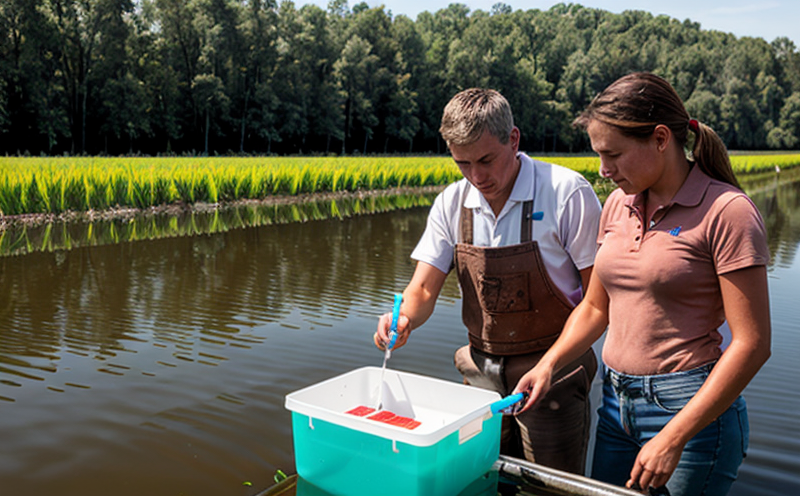Total Hardness Testing in Agricultural Water
Water hardness is a critical parameter that affects various aspects of agricultural operations. In agriculture and forestry testing, understanding water hardness ensures optimal crop growth, efficient nutrient absorption, and overall farm productivity.
The total hardness of water refers to the amount of dissolved calcium and magnesium ions in it, which are essential for plant nutrition but can also lead to issues such as scale formation if present in excess. Agricultural water sources like wells, rivers, and reservoirs often require periodic testing to ensure they meet quality standards.
The Total Hardness Testing Service offered by our laboratory is designed specifically for agricultural applications. We employ advanced analytical techniques that not only provide accurate results but also help in optimizing irrigation practices, reducing waste, and minimizing the risk of crop damage due to water hardness issues.
Our testing process involves several critical steps starting from sample collection, which should be done following strict guidelines to ensure the integrity of the sample. Once collected, the samples undergo rigorous preparation before analysis. The instrumentation used in our lab includes atomic absorption spectrophotometers (AAS) and ion chromatographs (IC), both of which are highly sensitive and precise.
The acceptance criteria for total hardness testing in agricultural water are based on international standards such as ISO 7163:2009, ASTM D4885-14, and EN 17396. These standards define the permissible limits of calcium and magnesium ions that should be present in irrigation water to ensure optimal crop health.
Understanding these parameters is crucial for quality managers and compliance officers who are responsible for maintaining regulatory compliance. For R&D engineers, this service provides insights into how different levels of hardness can affect soil conditions and plant physiology. Procurement professionals benefit from ensuring that the water used in their operations meets specified standards.
Our laboratory has extensive experience in agricultural testing and is equipped with state-of-the-art facilities to provide reliable results consistently. By leveraging our expertise, clients can make informed decisions regarding their irrigation practices, leading to better crop yields and more sustainable farming practices.
Applied Standards
The total hardness testing in agricultural water is guided by a set of internationally recognized standards that ensure consistency and accuracy. The most relevant standards include:
- ISO 7163:2009 - Water Quality - Determination of Calcium and Magnesium
- ASTM D4885-14 - Standard Test Method for Determination of Total Dissolved Solids in Water by Conductivity
- EN 17396:2016 - Water for agricultural use - Determination of total hardness
These standards provide the benchmarks against which our tests are conducted. They ensure that the results we deliver are not only accurate but also comparable with those from other laboratories around the world.
Industry Applications
The Total Hardness Testing in Agricultural Water has numerous applications within the agricultural sector:
- Irrigation Optimization: By testing water hardness, farmers can adjust their irrigation practices to match the specific needs of different crops.
- Nutrient Management: Understanding the total hardness helps in optimizing nutrient application rates and types, enhancing plant nutrition.
- Sustainability Practices: Ensuring that water sources used for agriculture meet quality standards contributes to more sustainable farming practices.
Customer Impact and Satisfaction
The Total Hardness Testing service has a significant impact on our customers, leading to increased satisfaction:
- Informed Decision-Making: With accurate data from our tests, clients can make well-informed decisions about their irrigation practices.
- Better Crop Yields: By ensuring that water used for agriculture meets the necessary quality standards, we help enhance crop yields and overall farm productivity.
- Sustainability: Our service contributes to more sustainable farming practices by minimizing waste and optimizing resource use.





